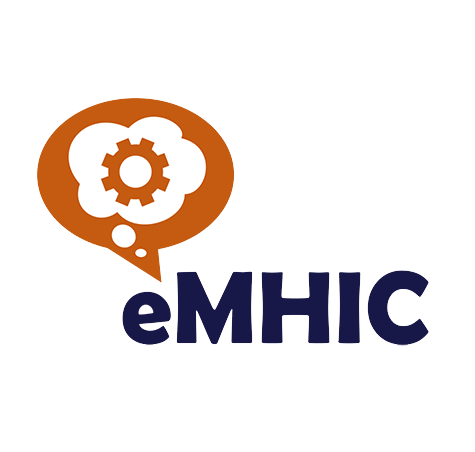Au cours de ce webinaire, les responsables de la collaboration internationale en matière de santé mentale discuteront de la manière d'obtenir le bon contexte politique et normatif.
La pandémie a mis à rude épreuve la santé mentale de nombreuses personnes et a mis en lumière des problèmes qui existaient déjà auparavant. Cela correspond à l'adoption croissante d'outils et de services numériques de santé mentale que nous observons, alors que des personnes du monde entier sont aux prises avec le COVID-19. La santé mentale des consommateurs, associée à un besoin aigu de services à distance, est le moteur du mouvement numérique. En France, par exemple, les cas de dépression ont doublé en 2020 et, dans le même temps, les sociétés de capital-risque ont multiplié par 4,5 le financement des jeunes entreprises spécialisées dans la santé mentale. Pour répondre à cette forte demande, on assiste à une prolifération de divers outils numériques de santé mentale. Les données internationales montrent que moins d'un quart de ces outils et services répondent aux normes minimales de sécurité et d'efficacité. Les gouvernements et les prestataires de services de santé mentale aux niveaux local, régional, étatique et national ont du mal à suivre le rythme du développement, qui a pris tout le monde au dépourvu.
Venez écouter ce que les leaders mondiaux ont à dire
Dans ce webinaire du groupe d'intérêt spécial, des dirigeants des États-Unis, de l'Australie, de la Nouvelle-Zélande, du Canada et de Singapour discuteront d'une gamme de réponses apportées par différents pays pour obtenir le bon contexte de politique et de normes en matière de santé mentale électronique. Les réponses des gouvernements ont pris de nombreuses formes, y compris le développement de stratégies, de cadres et/ou de normes en matière de santé eMental, afin d'informer une mise en service et une mise en œuvre efficaces. Bien que de bonnes mesures aient été prises dans diverses juridictions, il reste encore beaucoup à faire.
Panélistes experts :
1. Christine Morgan, CEO, National Mental Health Commission and National Suicide Prevention advisor to Prime Minister Rt Hon Scott Morrison, Australia.
Ms Christine Morgan is the CEO of the National Mental Health Commission and National Suicide Prevention Adviser to Prime Minister Scott Morrison. Ms Morgan is a passionate leader in mental health care reform, committed to listening and responding to the voice and needs of those with lived experience. Prior to joining the Commission, Ms Morgan was CEO of the Butterfly Foundation for eating disorders and Director of the National Eating Disorders Collaboration. As former CEO of the Butterfly Foundation, she led a collaborative advocacy strategy that included amplification of eating disorders as a serious mental and physical health issue. This is now being replicated internationally. In the not for profit sector, Ms Morgan was General Manager at Wesley Mission, over the areas of Corporate Services; and Community & Family Development. Prior to joining Wesley Mission, Ms Morgan was Executive General Manager responsible for managing the strategic direction and business unit effectiveness of the Wholesale, Broadband & Media Business Unit at Telstra.
2. Charles Curie, Principal, The Curie Group, Former Administrator, SAMSHA (2001 – 2006), USA.
Charles G. Curie is the principal and founder of THE CURIE GROUP, LLC, a management and consulting firm specializing in working with national and international leaders in public and private healthcare, particularly mental health (MH) services and substance use (SU) treatment and prevention arenas, to facilitate the transformation of services and to attain increasingly positive outcomes in the lives of people worldwide. Curie has over 40 years of professional experience in the MH and SU services fields. In 2001, Curie was nominated by President George W. Bush and unanimously confirmed by the U.S. Senate to head the Substance Abuse and Mental Health Services Administration (SAMHSA). As SAMHSA Administrator, Curie led the $3.4 billion agency responsible for improving the accountability, capacity and effectiveness of the Nation’s public mental health and addiction treatment services.
3. Phillip Grady, Acting Deputy Director-General, Mental Health and Addiction, Ministry of Health, New Zealand.
Philip’s range of experiences include frontline clinical nursing roles, senior management roles in both mental health and addiction services. In his current role as acting Deputy Director-General for Mental Health and Addiction, Philip is leading an ambitious programme of work that will see a once-in-a-generation transformation of mental health and addictions systems. This work is focused on improving access, choice and outcomes for New Zealanders and repealing and replacing the current Mental Health Act.
4. Ed Mantler, Vice President, Mental Health Commission of Canada, Canada.
A highly motivated visionary and an expert at building partnerships, fostering stakeholder engagement, and aligning strategic objectives, Ed has led innovation and improvement in both health care and mental health for over two decades. As Vice-President of Programs and Priorities at the Mental Health Commission of Canada, Ed is dedicated to promoting mental health in Canada and changing the attitudes of Canadians toward mental health problems and illnesses. Ed is a Registered Psychiatric Nurse, holds a Master of Science Administration degree, and is a Certified Health Executive.
5. Dr Daniel Fung, CEO, Institute of Mental Health, Singapore.
Le Dr Daniel Fung est le PDG de l'Institut de santé mentale de Singapour. Il est professeur associé auxiliaire dans les trois écoles de médecine de Singapour. Le Dr Fung est président de l'International Association for Child and Adolescent Psychiatry and Allied Professions et président du College of Psychiatrists, Academy of Medicine, Singapour. Le Dr Fung est co-auteur de plus de 200 articles de recherche, livres et chapitres de livres évalués par des pairs.
6. Professor Nick Titov, Executive Director, Mindspot, Australia.
My roles include Executive Director of both the Australian national MindSpot Clinic, www.mindspot.org.au, and the Western Australian Practitioner Online Referral and Treatment Service (PORTS), www.ports.org.au, and Co-Director of the eCentreClinic research clinic, www.ecentreclinic.org. I currently serve on advisory groups to several organisations. My research and professional aims are to reduce the prevalence and burden of common mental health disorders, and reduce barriers to care. There are three parts to this research. First is research aimed at understanding the mechanisms of change during psychological therapy. Second is research concerned with the development and evaluation of new psychological treatment models. Third is research aimed at determining how these protocols can be most safely and effectively deployed in routine clinical settings.





